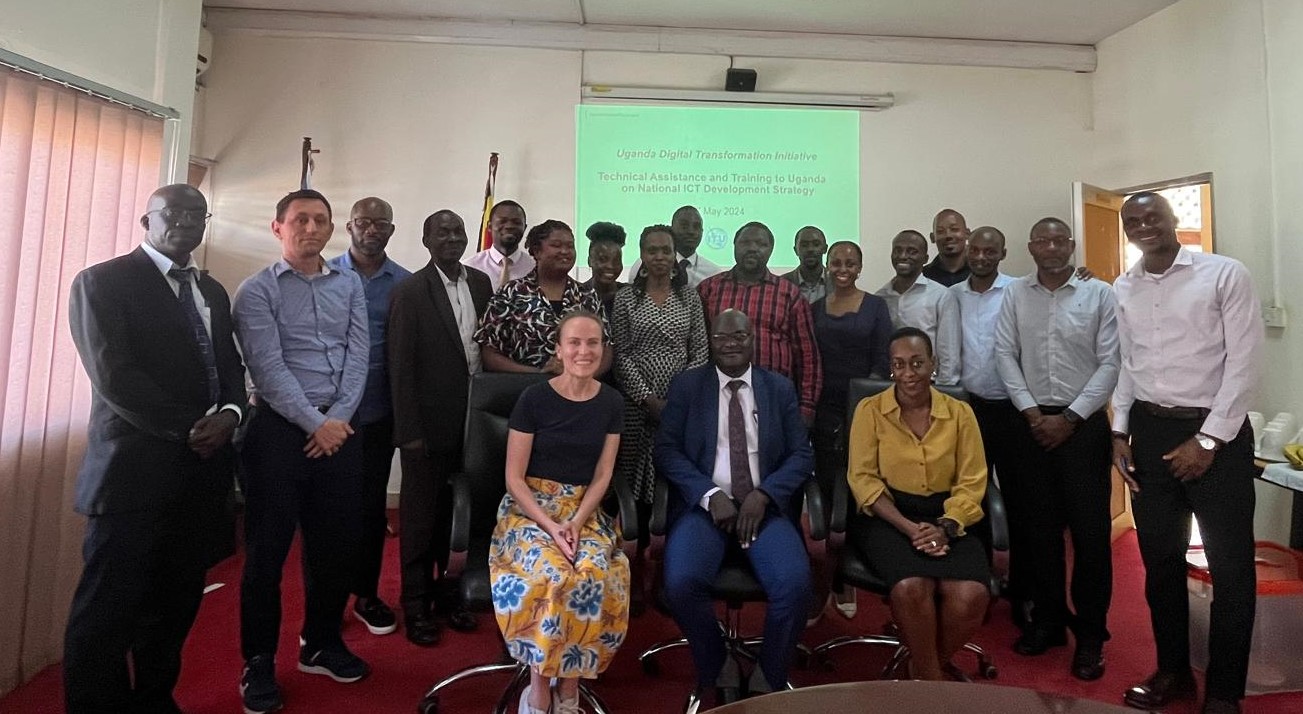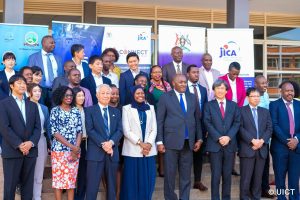Objective:
This project aims to enhance Uganda’s ICT policy and regulatory landscape, fostering the nation’s ongoing transformation into a digitally empowered, innovative, and competitive society.
Background:
The Digital Uganda Vision (DUV) serves as a comprehensive national policy and strategic framework that revisits, integrates, and refines existing ICT strategies, policies, and plans into a unified direction for Uganda’s digital development. By providing a coordinated approach to ICT project implementation, DUV seeks to align investments across sectors, ultimately improving Uganda’s global ICT rankings and attracting investors. The Third National Development Plan (NDP III) aspires to elevate household incomes and enhance the quality of life for Ugandans, with a focus on inclusive development. This is achieved through the Human Rights-Based Approach (HRBA), emphasizing equality, non-discrimination, empowerment, participation, and attention to vulnerable groups.
In 2019, Uganda was ranked 140th out of 162 countries in its progress on the Sustainable Development Goals (SDGs)This project supports the implementation of SDG 9 (Building resilient infrastructure, promoting inclusive and sustainable industrialization, and fostering innovation) and aims to accelerate progress across other SDGs by driving digital transformation.
Areas of Work:
Aligned with the Third National Development Plan (NDP III) and the Digital Uganda Vision (DUV) framework, this project establishes a foundation for ICT policy and planning. It emphasizes integrating ICT with other key sectors in Uganda, advancing digital transformation in trade, government, education, health, and beyond while promoting employment and sustainable development. The project employs a three-pronged approach—focused on developing recommendations, building capacity, and implementing pilot projects—to contribute to creating a digitally empowered society and knowledge-based economy. It also seeks to improve internet connectivity across Uganda, enhance the resilience of these networks, and leverage related opportunities to drive sustainable social and economic development. Additionally, the project supports the Government of Uganda in strengthening ICT policy and regulatory frameworks to make ICT services more affordable and accessible for all Ugandans.
Approach:
The project is delivered through three interconnected components:
1. Policy and Strategy Recommendations:
– Review and enhancement of the national broadband plan, including monitoring and evaluation frameworks.
– Development of a 5G and spectrum management strategy and implementation plan.
– Advancement of international communication networks.
– Expansion of the national backbone transmission network, including a data center strategy.
– Improvement of last-mile connectivity and infrastructure, especially in rural and remote areas.
– Development of big data capabilities.
2. Cross-Cutting Capacity Development:
– Expansion of telecommunication services in underserved regions, particularly in critical sectors like education.
3. Design and Implementation of Pilot Projects:
– Support for Uganda’s ICT industry development policies, including e-waste management.



